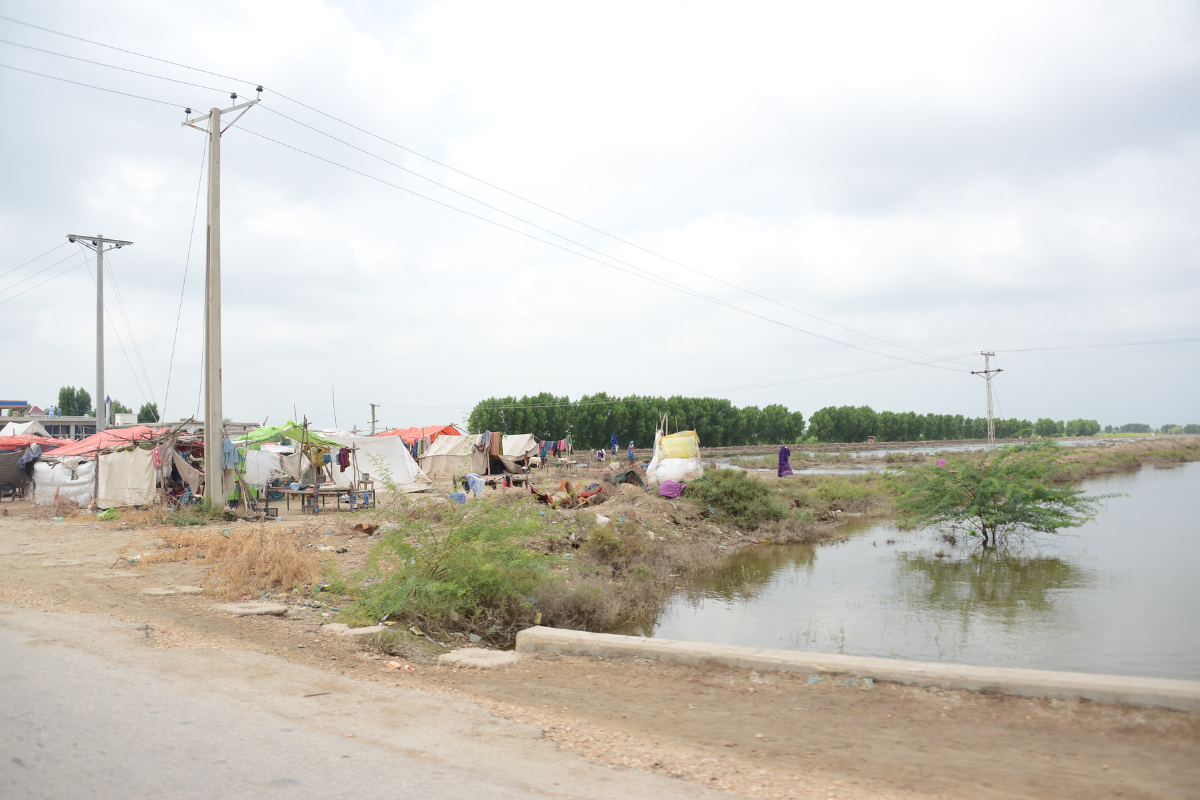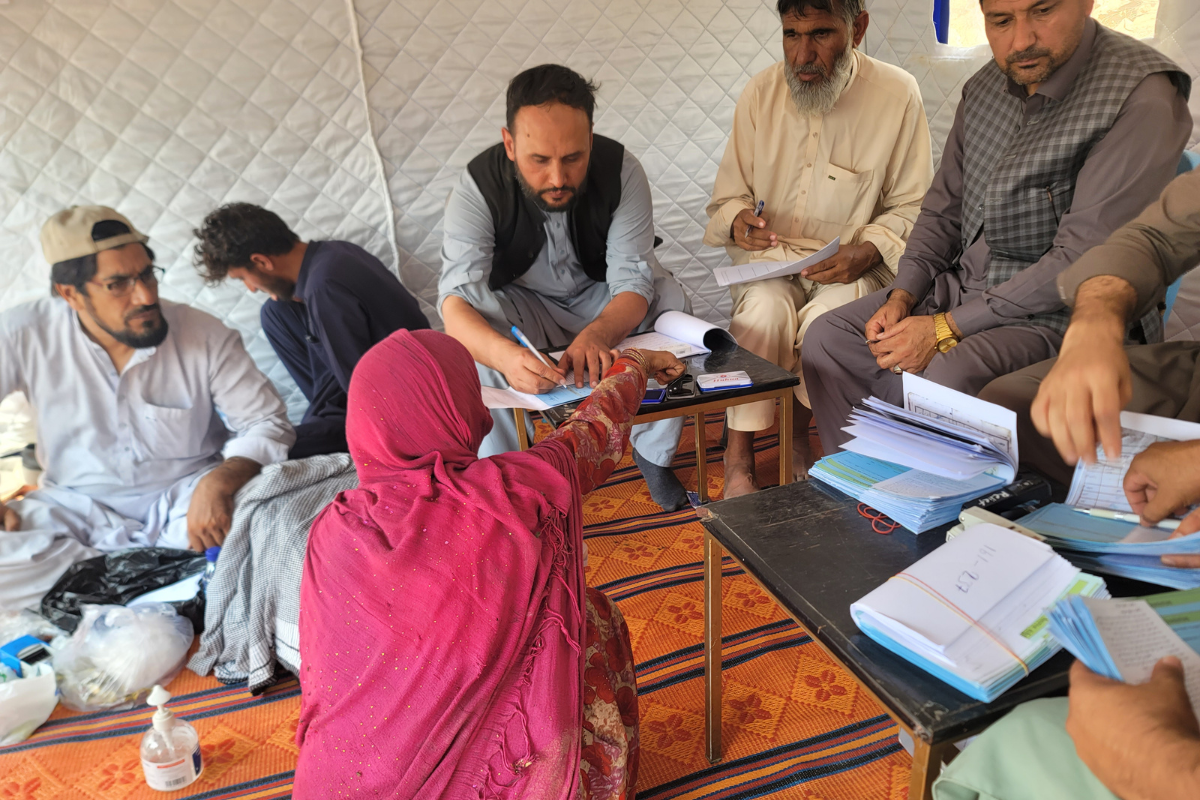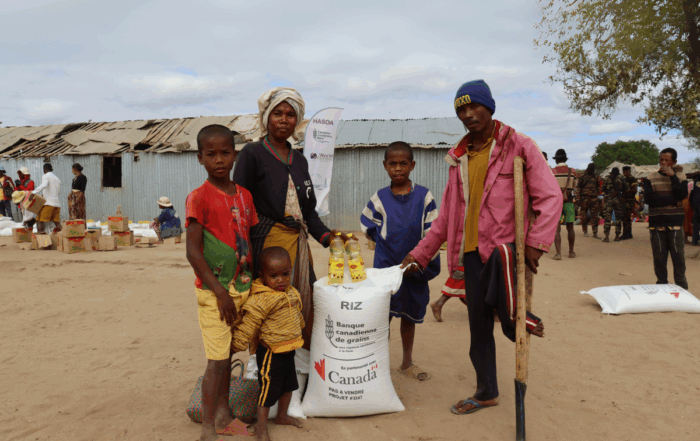Pakistan: A Widow Holds onto Hope

While World Renew does not have a presence in Pakistan, when the monsoons dumped more rain than rivers could hold and sent water sweeping across roadways, through houses and schools and left the country in a state of emergency, God’s faithful answered the cries of the Pakistani people with prayers and generosity. Through World Renew’s unique partnership with the Canadian Foodgrains Bank, your gifts are helping support the on-ground efforts of our peer member, the Presbyterian World Service & Development (PWSD).
Four months after the rains started, in the hardest hit areas of the country where the waters are still slowly receding, roads must be travelled by boat. The flooding is hampering aid efforts and it will take time for rebuilding to begin.
One village impacted by the flooding was once home to over 2,700 people and more than five hundred families. The village looks like a ghost town with houses half submerged in water. This is where Tejan, an elderly woman, warmly welcomes staff members of PWSD local partner, Community World Service Asia, who step out of the boat and directly into her home.
There are utensils laid out on Tejan’s patio. “We just got done washing all the utensils,” she says as she points to the flood water settled around her house. “We [used] this water. This is the only water we have access to. We use it to wash clothes and to bathe. We try to keep it in the sun so that the dirt settles down first.” Pointing at a nearby water tank, Tejan explains, “We used to have a water reserve but with the rains, it leaked and all the dirty water got mixed into it. So we have no option but to use this. We use it for cooking too.”
A group of women and children – presumably all Tejan’s relatives – join Tejan and her guests. The village had been evacuated by the army three weeks earlier. The women didn’t leave because they wanted to stay to protect their home. They also stayed to protect their honour. This family belongs to the conservative Baloch tribe, whose female members never mingle with men from outside their community. Tejan and the other women stayed to avoid being exposed to men from other communities living in emergency camps or outside on the roadside where many families have settled temporarily.
Tejan is a widow and mother of eleven children, most of them married. Two of her sons live in the house with her. One of them, who works at a government office, returned to his job to ensure he could continue to generate income.
The other son, who relied mostly on their livestock and small agrarian garden, has temporarily settled with his children in a makeshift tent on the roadside to get whatever in-kind support he can from government agencies, good samaritans, or humanitarian organizations passing by.
Tejan’s brother occasionally sends flour, lentils, milk and water. “The water he sends is treated like holy water,” Tejan laughs. “We use it very sparingly as we know it cannot last all of us very long.” But even as she jokes, she worries, “ I do not think my brother can keep supporting us. His own house and lands have also been affected.”
With increasing food insecurity and with no idea when the water around their house and their village will recede, or when they will next receive food, the women are careful with the supplies they have. Tejan says, “We mostly eat one meal a day. That meal consists of some flour we cook together with chopped onions, chillies, and [the odd time], tomatoes. We cook all of it together because we do not have enough fire-wood or fuel so we cannot waste it on cooking [them] separately.”
But food insecurity is not the only fear this family lives with. “Many of us have not stepped out of this house since the floods … We do not let [the children] go out much and have to guard them well as there are many snakes in the water that come to our house too. We have heard that a lot of the children in our village have also gotten sick,” says Tejan.
Tejan leads her visitors to her backyard. Her eyes fill with tears as she looks at the 8 to 10 feet of water that now covers the garden where she successfully grew vegetables before the flooding. Her home was once her sanctuary, a place she was proud of and where all her happy memories were lived, but living in the current conditions is dangerous. The walls of her house are leaking and most of the outer walls are totally damaged. But Tejan stays, holding onto the hope that her prayers will soon be answered and her family will no longer have to worry about their health and safety or about having enough food and clean water.
Photos provided by Community World Service Asia.
MORE STORIES AND NEWS
Afghanistan: Supporting families after the earthquake
Supporting families after the earthquake in Afghanistan October 1, 2025 Supporting families after the earthquake
World Renew urges global action to halt starvation crisis in Gaza
August 7, 2025 — The humanitarian crisis in Gaza is escalating at an alarming pace. Heartbreaking reports of widespread
Madagascar: A Mother’s Courage
A Mother's courage in southern madagascar July 24, 2025 A Mother’s Courage in southern madagascar JULY 24,






